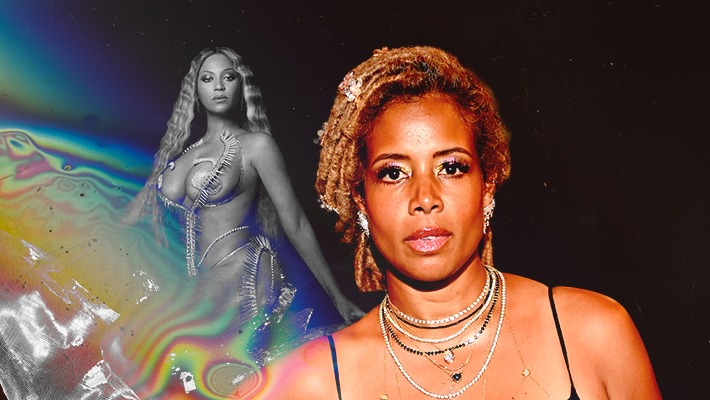Beyonce’s new album, Renaissance, has arrived and while the Beyhive is celebrating the long-awaited return of their Queen, not everyone is as enthused to hear the house and techno-influenced project. In particular, Kelis, the singer best known for her early 2000s run including tracks like “Caught Out There,” “Milkshake” and “Bossy,” has a bone or two to pick with Beyonce over one song specifically: “Energy,” which features short interpolations of her songs “Get Along with You” and “Milkshake.”
Taking to Instagram, Kelis said she felt insulted by the samples, calling them “theft” and asserting “the level of disrespect and utter ignorance of all three parties involved is astounding.” Her frustration appears to stem from the fact that she wasn’t contacted prior to the release to approve the samples, writing, “I heard about this the same way everyone else did. Nothing is ever as it seems, some of the people in this business have no soul or integrity and they have everyone fooled.”
In a later video, she elaborated, “She can contact, right? Ashnikko, who’s what, 20? She’s a young white girl, she reached out… It’s common decency.” She clarified that “it’s not about me being mad about Beyoncé,” and reiterated her arguments stemming from a few years ago when she called out Pharrell and Chad Hugo, The Neptunes, for not crediting her as a songwriter for her first two albums with them. In her view, Pharrell and Chad tricked her out of her publishing rights and the associated royalties that come with them.
Now, whether or not you agree with Kelis, her comments make one thing crystal clear and practically undeniable: The recording industry as we know it is desperately in need of an overhaul. In fact, it could be argued that reform of the current business model is decades overdue; after all, the internet nearly killed the major label system over twenty years ago when downloading .mp3s on Napster was the preferred method of music consumption for a relatively small sector of the market. Now, with the advent of streaming, blockchain, and computerized algorithms driving music discovery — and keeping track of every transaction automatically, there’s no excuse not to implement some big changes when it comes to things like attributing credits and royalties to artists.
To be fair, Beyonce did give credits to the required parties, clearing the samples and getting permission from the rights holders. Publishing administration is handled by the business people; I’m not so sure how much of a hand Beyonce personally has in that end of the creation process (probably very little, considering the seeming 1 billion other details she personally oversees, from choreography to costuming). And Kelis did sign those contracts — or neglected to sign the split sheets — that abdicated her share of publishing to Star Trak.
But that might be the biggest part of the problem. How many artists have we seen come forward over the past few years about regrettable terms they didn’t understand in contracts they signed as teenagers? What does a 17-year-old know about the masters rights or publishing rights or how an advance works? And for what it’s worth, we’ve seen how supposed industry veterans like Kanye West, who was in his mid-20s when he signed with Def Jam after working with the label for years on multiple hits, clearly don’t get how these things work. Who’s to say, without looking at the contracts in question, that Pharrell himself even knows what he signed Kelis to?
If we’re going to point fingers, we’ve got to point them at the powers that be, the folks who set up the system and profit the most from it — and who refuse to change it to keep with the times. With so many new technologies available, wouldn’t it make sense to review some of these “industry standard” contracts and revise the industry standards to fit modern conditions? Thanks to technology, labels have new avenues to market and promote music and turn a profit on their investments, wouldn’t it behoove them to share those profits with the people generating the product? If the industry is a house, archaic practices are the termites destroying it from the inside while the changing times are the weather, slowly stripping away the paint and wearing down the roof.
I get why they wouldn’t want to perform a top-down overhaul. It’d be costly, it’d be time-consuming, and it’d take a lot more work than they’re already putting in to generate record revenues. But just like with a house, if you don’t do the maintenance, eventually all those little problems add up to bigger problems and you find yourself looking for a new place to live. The near collapse of the industry in the early 2000s should have been a warning; while the labels narrowly escaped their demise then, it was by innovating and challenging the status quo. Unfortunately, some seemed to have missed the lesson. The next epochal shift in music technology could be right around the corner, and next time, they might not be able to save themselves.

